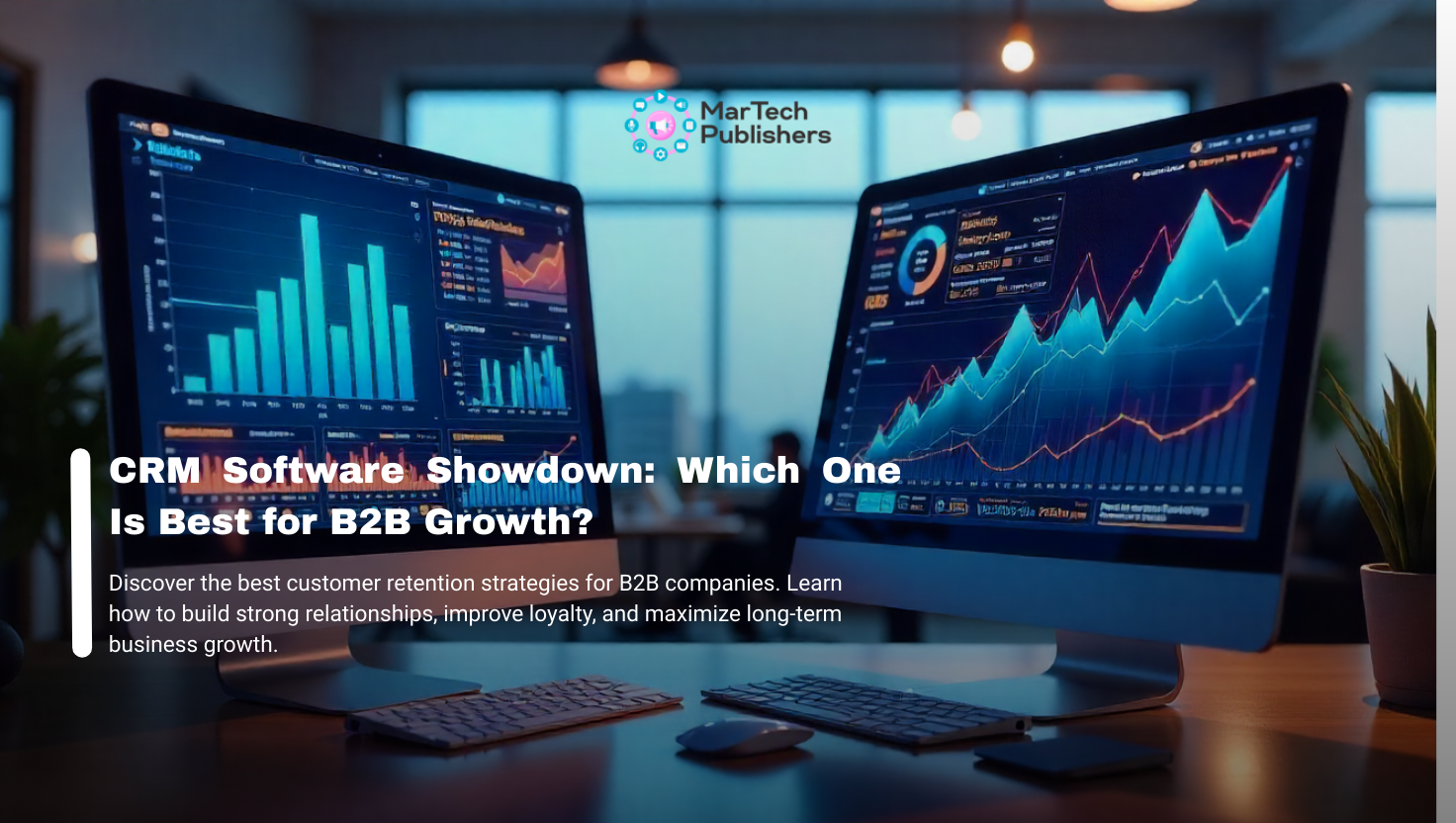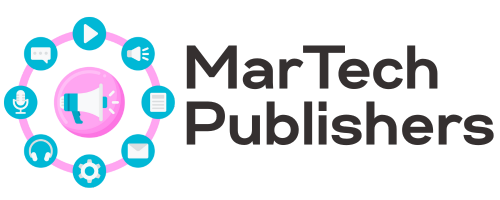Introduction
In today’s very competitive B2B market space, the customer relationship determines success. Companies no longer sell products or services-they form partnerships, tend to be long-term conditions and ensure customers to get value at all stages. The center of this change is the Software for Customer Relationship Administration (CRM), a device that has become the backbone of modern B2B development.
But there are so many CRM solutions available – HubSpot, Salesforce, Zoho, Microsoft Dynamics 365, and others – How do you know what’s right for your business? In this performance, we will detect the top CRM software options, their strengths and weaknesses and how they contribute to B2B development in 2025.
Why CRM Matters for B2B Growth
CRM software is not just a digital rollodex; It is a powerful development engine. This is why it is important for B2B companies:
- Better customer relationship – CRM equipment centralizes customer interactions, and helps sell and account managers to have strong relationships.
- Data-operated decision analysis provides insight into customer behavior, cycle purchases and sales trends.
- Sales efficiency – Automation of repetitive tasks allows the teams to focus on closing appointments and confusing customers.
- Scalability – which – as the business grows, provides flexibility to handle large versions of CRM data and more complex processes.
- Customer storage– A CRM ensures that customers feel valuable through timely followed, personal communication and loyalty programs.
In short, CRM software fuel for both clients and storage, which is an important tool for B2B development.
Key Features to Look for in a B2B CRM
When evaluating CRM platforms, they should focus on these:
LED and OPPORTUNITY MANAGEMENT – SPORM PROCESSIONS ranging from initial contact to closed agreements.
- Pipeline Management – Imagine sales and predicted revenue.
- Automatic email, follow-up and workflakes.
- Integration – connect to ERP, e -post platforms, social media and marketing automation tools.
- Analysis and reporting – provide action -rich insights into sales teams and management.
- Mobile access – Enable the moving sales teams.
- Adaptation – Customize the workflow to match your unique business processes.
CRM Software Showdown: Top Contenders
1. Salesforce CRM
Best for: Large enterprises with complex sales cycles
Salesforce is considered the gold standard in CRM. It’s powerful, customizable, and offers a vast ecosystem of integrations.
- Pros:
- Highly customizable
- AI-powered analytics (Einstein AI)
- Robust app marketplace
- Scales easily for enterprise needs
- Cons:
- Steep learning curve
- Expensive for small businesses
Why it’s great for B2B growth: Salesforce provides deep insights into customer behavior and helps businesses manage long, complex sales cycles efficiently.
2. HubSpot CRM
Best for: Small to mid-sized businesses seeking ease of use
HubSpot is one of the most popular CRMs for growing B2B companies. Its free version attracts startups, and the paid tiers offer advanced features.
- Pros:
- Free version available
- Intuitive interface
- Strong marketing automation
- Seamless integration with HubSpot ecosystem
- Cons:
- Limited customization in free tier
- Can get pricey with premium features
Why it’s great for B2B growth: HubSpot is excellent for businesses aiming to align sales and marketing teams while scaling up gradually.
3. Zoho CRM
Best for: Cost-conscious businesses with global operations
Zoho CRM is affordable, versatile, and widely used by SMBs and mid-market companies.
- Pros:
- Affordable pricing
- AI features (Zia assistant)
- Multilingual and multi-currency support
- Strong integration with Zoho suite
- Cons:
- Interface can feel cluttered
- Limited advanced features compared to Salesforce
Why it’s great for B2B growth: Zoho is ideal for B2B companies expanding globally while keeping costs low.
4. Microsoft Dynamics 365
Best for: Companies already using Microsoft products
Dynamics 365 is a powerful CRM, deeply integrated with Microsoft’s ecosystem—Office 365, Outlook, Teams, and Azure.
- Pros:
- Excellent Microsoft integration
- Strong AI-driven insights
- Great for enterprises
- Powerful automation
- Cons:
- Complex setup
- Requires skilled administration
Why it’s great for B2B growth: It’s perfect for enterprises looking to unify business operations and leverage Microsoft’s AI and cloud ecosystem.
5. Pipedrive CRM
Best for: Sales-focused B2B teams
Pipedrive is a sales-centric CRM with a simple interface and strong pipeline management features.
- Pros:
- Easy-to-use
- Visual sales pipelines
- Affordable plans
- Strong automation for sales teams
- Cons:
- Limited marketing automation
- Not ideal for enterprises
Why it’s great for B2B growth: For sales-driven organizations, Pipedrive ensures efficient deal management and clear visibility of sales pipelines.
Comparing CRM Options
| CRM Software | Best For | Strengths | Weaknesses | Pricing (Approx.) |
|---|---|---|---|---|
| Salesforce | Large Enterprises | Customization, AI, scalability | Expensive, complex | $$$$ |
| HubSpot | SMEs, Startups | Ease of use, marketing features | Limited customization | $$ – $$$ |
| Zoho CRM | SMBs, Global businesses | Affordable, multilingual | Cluttered interface | $ – $$ |
| Microsoft Dynamics | Enterprise, MS users | AI, Microsoft ecosystem | Complex, needs expertise | $$$$ |
| Pipedrive | Sales-focused teams | Pipeline management, simplicity | Limited marketing tools | $ – $$ |
How to Choose the Best CRM for B2B Growth
When deciding, ask these questions:
- What’s my business size and budget?
- Small businesses may prefer HubSpot or Zoho.
- Large enterprises should consider Salesforce or Dynamics 365.
- Do I need strong marketing automation or sales automation?
- HubSpot for marketing-heavy teams.
- Pipedrive for sales-focused teams.
- Which integrations matter most?
- Microsoft users should go with Dynamics.
- Businesses seeking flexibility can choose Salesforce.
- What’s my growth plan for the next 3–5 years?
- Pick a CRM that grows with you—don’t just choose based on today’s needs.
Conclusion
The CRM you choose can make or break your B2B growth strategy. While Salesforce leads in enterprise solutions, HubSpot is perfect for SMEs, Zoho balances affordability with functionality, Microsoft Dynamics 365 integrates seamlessly into the Microsoft ecosystem, and Pipedrive empowers sales teams with clarity and focus.
Ultimately, the best CRM depends on your budget, company size, sales cycle, and growth goals. With the right CRM in place, your B2B business can build stronger relationships, improve retention, and achieve long-term growth in 2025 and beyond.


